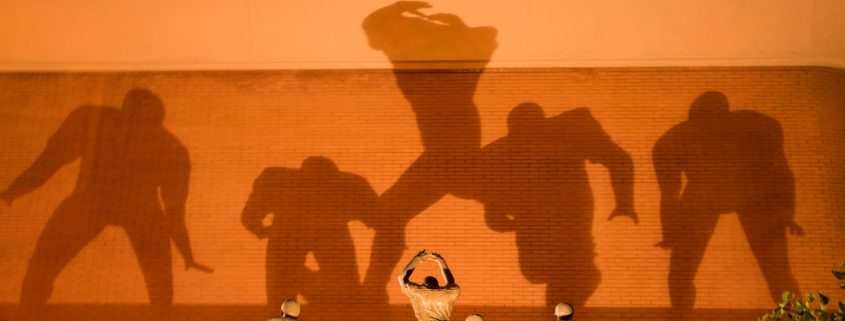From the Editors: This section isn’t your escape

In just about every way, this won’t be a normal semester for anyone in the USC community. Athletics are no exception, and that’s not just because the football schedule will exclude Notre Dame for the first time since World War II.
Tailgating? Wouldn’t bet on it. Fans in the stadiums? Unlikely. Games taking place at all? Far too early to tell, but there’s no guarantee — no matter what the schedule says.
There is a multitude of questions regarding whether fall sports will be played this year. Administrators are forced to consider not just the economic necessity and logistical feasibility of safely carrying out a 2020 season but also the ethics of taking such a risk in the first place.
We’re in the middle of a monthslong pandemic that is now hitting Southern California hard. If not done strategically and with health at the absolute forefront of decision making, playing any sport this fall will put not just the health of student-athletes, coaches and team personnel at risk but also that of the surrounding South Central community. Universities across the country are not incubated from the neighborhoods that surround them, meaning every NCAA-affiliated event carried out carelessly could endanger residents whether they are fans or not.
Most people across the sporting landscape have concerns about the feasibility of safely carrying out a fall sports season. Almost all are hoping there’s a way to make it happen. Both statements apply to us.
So, until we’re all told there won’t be college sports this semester, the Daily Trojan sports team will continue to bring you as close to your typical fan experience as we can with the resources available to us, even if much of that work will be done remotely.
We know that USC Athletics is a major aspect of campus life for students, identity for alumni and pride for fans. USC Athletics is a brand, one that plays a central role to so many members of the University community. The term “Trojan Family” is perhaps best on display amid the backdrop of USC sports, and that’s a reality we don’t take lightly.
At the same time, it is evident that this brand is part of a flawed system reflecting the plague of systemic racism so deeply ingrained in our society. The student-athletes that make college sports function are using their platforms to say as much — and we should listen.
The NCAA has long been known as an organization that exploits its student-athletes by reeling in hundreds of millions of dollars for predominantly white administrators, commissioners, athletic directors and coaches without directing a dime of that money toward the student-athletes generating its revenue. This dynamic is especially prevalent in college football and basketball — sports that make the most money and comprise the highest percentage of Black student-athletes.
Now, to add on, student-athletes are having to fight for uniform coronavirus prevention protocols and medical coverage from the NCAA during a pandemic that disproportionately affects the Black community.
College athletes have said as much. A group of Pac-12 football players wrote a letter in the Players’ Tribune Aug. 2 stating they will opt out of the 2020 season if the NCAA does not remedy these shortcomings. Student-athletes at USC formed the United Black Student-Athletes Association in June to demand that the Athletic Department better support its Black student-athletes and actively fight racial injustice.
It’s our responsibility to tell these stories. It’s our responsibility to highlight and celebrate the achievements of Black student-athletes, both on and off the field, that are too often taken for granted. It’s our responsibility as journalists at USC to shed light on how college sports are not a vacuum outside of society but rather part of an inherently unequal hierarchical system.
The Black Lives Matter movement has firmly ingrained itself in athletics, and that cannot and should not be undone. The work begun by Colin Kaepernick and carried on by Eric Reid, LeBron James and countless others has made a profound impact on sports, and athletes on both the professional and collegiate stage are continuing that today.
We want to look at the big picture when reporting on our student-athletes. All of us love sports, but that doesn’t mean the system providing us with such rich and entertaining moments is or has ever been anything close to perfect. The student-athletes who make you proud to call yourself a Trojan are reckoning with a sporting landscape that doesn’t prioritize their equity.
This is our promise to reflect these complex truths in our reporting. This is our promise to improve upon our regrettable lack of diversity among our staff and our columnists to uplift the voices that we have historically undercovered.
The Daily Trojan is a completely independent, student-run platform, and it is our job to provide a voice to our local community and student body. This means increasing profiles that highlight the achievements and contributions on and off the field of the Black student-athletes in our community, dedicating ourselves to covering social justice issues within USC Athletics and the wider world of sports and holding the Athletic Department accountable to follow through with its initiatives to fight for racial justice both within Trojan athletics and beyond.
Tradition is everything to USC, but change is demanded for a reason. These are just some of the many ways we can and must listen to the voices — especially those of color — in our community and help do our part in effecting lasting, tangible change.
This is a moment when we must collectively understand that acknowledging systemic injustice without actively working to dismantle it is simply not enough.
Note: This article was written prior to the postponement of Pac-12 sports through 2020.

